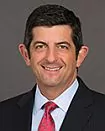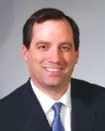Can a nonhousehold member recover against a product's manufacturer or supplier for secondary exposure to asbestos under a strict liability theory? Yes, according to the recent California Court of Appeal's decision in Williams v. J-M Manufacturing Company, Inc., which affirmed a jury's verdict and trial court ruling that pipe manufacturing company J-M Manufacturing (J-MM) is strictly liable for a bystander's secondary exposure to asbestos and subsequent development of cancer.1 Williams departs from California precedent limiting an employer's or premises owner's negligence liability for take-home exposure and has serious implications for manufacturers and distributors whose products contain asbestos and other transmittable toxic substances.
Background
Cornelius Williams sought recovery for personal injury from J-MM and other defendants after being diagnosed with mesothelioma, a disease associated with prior exposure to asbestos. Cornelius contended that his brother Nathan worked with asbestos in his workplace and that close interactions between them over 20 years, despite not living together in the same home, resulted in his secondary-exposure to asbestos. The jury found that Cornelius demonstrated he was exposed to asbestos from J-MM pipe used at Nathan's jobsites and that the exposure was a substantial factor in the development of his cancer. J-MM appealed.2
Limitations on Duty under California Law
The California Supreme Court's 2016 decision in Kesner v. Superior Court3 established that employers or landowners owe a duty of care to prevent secondary exposure to asbestos, holding that the duty of employers and premises owners to exercise ordinary care in their use of asbestos includes preventing exposure to asbestos carried by the bodies and clothing of on-site workers. Importantly, however, the court held that this duty extends only to members of a worker's household, and that "[b]ecause the duty is premised on the foreseeability of both the regularity and intensity of contact that occurs in a worker's home, it does not extend beyond this circumscribed category of potential plaintiffs."4
Nonapplicability to Strict Liability Claims
In Williams, J-MM argued on appeal that strict liability does not apply to Cornelius because he was not a member of his brother's household and would be barred from raising a claim against J-MM under Kesner. J-MM asserted that it could not be found liable because Cornelius was not living with his brother and the "unmanageability of claims ... point to the need for a limitation on the scope of the duty."5 However, the Court of Appeal reasoned that Kesner only addressed negligence and premise liability and does not apply in a strict products liability case because the plaintiff bringing such a claim is not required to prove any element of duty and the "defendant's behavior is irrelevant."6
J-MM next argued that even if Kesner did not address strict liability, it should still apply to bar Cornelius' claim as a matter of law because strict liability and negligence are shaped by the same elements and general underlying policy considerations balancing the costs and benefits of liability. J-MM contended that ruling otherwise would burden product suppliers with all the blame and lead to limitless litigation. The Court of Appeal disagreed, reasoning that there are adequate guardrails to prevent strict liability from becoming absolute liability―notably including the plaintiff's burden to prove the existence of a defect and affirmative defenses such as assumption of risk. The court found that there is "nothing in these elements that categorically excludes a plaintiff ... from seeking to prove his claims" that J-MM's pipe "defied consumer expectations and failed to provide adequate warnings when the product is used in a [reasonably] foreseeable way."7
Citing Elmore v. American Motors Corp.,8 the court also found that strict liability is appropriate and perhaps even more applicable to third parties such as bystanders, who should be entitled to even greater protection than the consumer or user where injury to bystanders from the defect is reasonably foreseeable, as they are "powerless to protect themselves from those defects."9
Conclusion
While Kesner continues to bar take-home exposure negligence claims by nonhousehold members against employers and landowners, Williams leaves strict products liability as an avenue of recovery for such bystander plaintiffs. With its holding in Williams, the Court of Appeal may have opened up the floodgates for bystander claims against manufacturers and distributors predicated upon the bystander's incidental, sporadic or transitory interaction with an individual who has known exposure to asbestos (and perhaps other toxins) in the workplace. However, most exposures occur decades before injuries and claims manifest, leaving defendants with a very limited ability to confirm or refute claims of product identification, use and interaction. Further review by the California Supreme Court seems necessary to harmonize Kesner with the strict liability doctrines and correct this imbalance.
For More Information
If you have any questions about this Alert, please contact Michael L. Fox, Sharon L. Caffrey, Dana J. Ash, Sean K. Burke, any of the attorneys in our Products Liability and Toxic Torts Group or the attorney in the firm with whom you are regularly in contact.
Footnotes
1 Williams v. J-M Mfg. Co., Inc., No. A162561, 2024 WL 2312099 (Cal. Ct. App. May 22, 2024). JM-M plans to petition the California Supreme Court for review, and believes the First District Court of Appeal misinterpreted relevant California Supreme Court precedent.
2 J-MM raised three arguments on appeal: (1) strict liability does not apply to Cornelius; (2) there was a lack of substantial evidence that J-MM manufactured the pipes; and (3) the trial court abused discretion on evidentiary rulings. The Court of Appeal rejected all three arguments, but its decision regarding strict liability is the only published portion of the opinion.
3 Kesner v. Superior Court, 384 P.3d 283 (Cal. 2016).
4 Id. at 289.
5 Williams, 2024 WL 2312099 at *5 (citing Kesner, 384 P.2d at 301).
6 Williams, 2024 WL 2312099 at *5 (citation omitted).
7 Williams, 2024 WL 2312099 at *6.
8 Elmore v. American Motors Corp., 451 P.2d 84 (Cal. 1969).
9 Williams, 2024 WL 2312099 at *7 (citing Elmore, 451 P.2d at 88).
Disclaimer: This Alert has been prepared and published for informational purposes only and is not offered, nor should be construed, as legal advice. For more information, please see the firm's full disclaimer.




